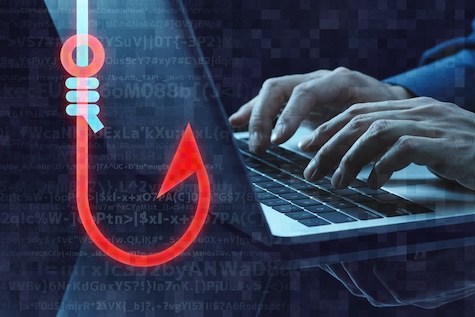
.
Cyber security is everyone’s business. With cyber threats becoming more frequent and complex now is the time to make sure your business is secure.
This October, for Cyber Security Awareness Month, take the opportunity to talk to your employees and colleagues about the essential steps that you can all take to protect your digital identities and keep your business operating smoothly. With these 4 simple actions, you can greatly reduce the risk and impact of cyber threats on your business:
- Use strong passwords that are long, unique and unpredictable.
- Turn on multi-factor authentication (MFA).
- Turn on automatic software updates.
- Recognise and report phishing scams.
Use strong, long and unique passwords
Strong passwords are your first defence against unauthorised people trying to access your online accounts.
Across your business accounts, make sure you use long, unique and unpredictable passwords for each account. You could also try using ‘passphrases’ (passwords made of 4 or more random words) which are more complex, making it harder for criminals to crack.
For more on passwords, read our article: 6 steps to better password hygiene.
Turn on multi-factor authentication (MFA)
Multi-factor authentication, also known as MFA, adds an extra layer of protection by asking you in 2 or more ways to prove that an authorised person is logging in. It makes it much harder for others to access your online accounts.
For more on general cyber security and multi-factor authentication, read our article: The essential small business guide to cyber security.
Turn on automatic software updates
Turning on automatic software updates for your business devices and apps is one of the easiest ways to protect yourself online. Check your device's settings and make sure that automatic updates are turned on across all your business devices.
For more on software updates and general cyber security, read our article: The essential small business guide to cyber security.
Recognise and report phishing scams
(Phishing: the fraudulent practice of sending emails or other messages purporting to be from reputable companies in order to induce individuals to reveal personal information, such as passwords and credit card numbers.
Remember to always check the senders address. Scammers can go close but they can not use the exact same URL (domain address) as the company they purport to be from. If still in doubt then ring the company involved to double check. Doing these two things will go a long way to stopping you being scammed.)
Phishing is one of the most common scams used by cybercriminals to steal personal and financial information. To avoid getting caught by phishing, be cautious with unsolicited messages or links and encourage everyone with access to your business emails and messages to look out for red flags, like urgent language requesting you to take action.
For more on phishing, read our article: Spyware and stalkerware: How to check and protect your business devices.
More cyber security resources
By taking the 4 steps, you can greatly lower your risk of falling victim to cyber threats. For more practical advice and tips on how to protect your business, see Business Victoria’s range of cyber security resources:
Acctweb
22nd-November-2024 |